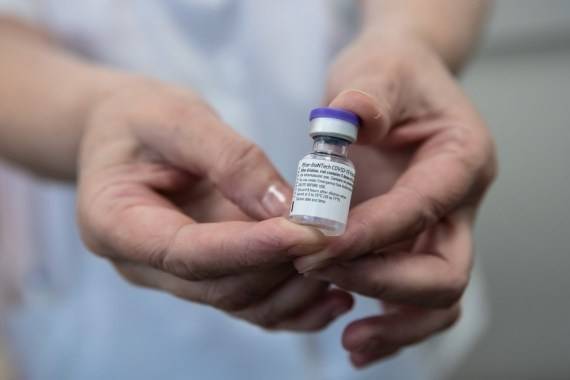The country administers an average of 401,937 doses of COVID-19 vaccines each day, the health ministry said, adding that this would increase to 500,000….reports Asian Lite News
Saudi Arabia has assured that mixing doses of COVID-19 vaccines from different brands, which have already been approved in the Kingdom, is safe.
Saudi Press Agency (SPA) quoted the official spokesman for Ministry of Health (MoH), Dr. Mohamed Al-Abdali, as saying that it is a procedure authorised by the World Health Organisation (WHO) and in many countries of the world.
Dr. Al-Abdali said in a tweet, “Incorrect interpretations are being circulated in the media about what was issued by the World Health Organisation about mixing the vaccines. We confirm the safety of mixing the vaccines approved in the Kingdom, based on [inputs from] international research and specialised scientific committees, as this procedure is authorised by WHO and a number of world’s countries.”
The country administers an average of 401,937 doses of COVID-19 vaccines each day, the health ministry said, adding that this would increase to 500,000.
Over 20.5 million doses have been administered to date in the Kingdom, and more than 58.9 percent of the Kingdom’s 34.8 million population has received at least one dose.
Meanwhile, King Salman Humanitarian Aid and Relief Center (KSrelief) sent the first Saudi airlift of medical, preventive supplies to Tunisia to help combat the spread of COVID-19.
On Wednesday morning, two aircraft took off from King Khalid International Airport in Riyadh to Tunisia, carrying essential medical and preventive supplies and equipment.
The move was in response to a request from Tunisian President Kais Saied during a call with Crown Prince Mohammed bin Salman on Friday.
Dr. Abdullah Al-Rabeeah, general supervisor of KSrelief, said earlier that the directive “comes as an affirmation of the depth of the strong relations that bind the leaderships of the two countries”, the Arab News reported.
He said the aid includes 190 artificial respirators, 319 oxygen tanks, 150 medical beds, and 50 vital signs monitoring devices with trolleys, as well as 4 million medical masks, 500,000 medical gloves, 180 pulse oximeters, 25 intravenous drug pumps, nine defibrillators, 15 video laryngoscopes, and five electrocardiographs (ECG), it was reported.

Leave a Reply